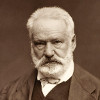“ The man of the most perfect virtue, the man whom we naturally love and revere the most, is he who joins, to the most perfect command of his own original and selfish feelings, the most exquisite sensibility both to the original and sympathetic feelings of others. ”
Adam Smith, The Theory of Moral Sentiments (1759). copy citation
| Author | Adam Smith |
|---|---|
| Source | The Theory of Moral Sentiments |
| Topic | sensibility virtue |
| Date | 1759 |
| Language | English |
| Reference | |
| Note | |
| Weblink | https://en.wikisource.org/wiki/The_Theory_of_Moral_Sentiments |
Context
“in our own prosperity and success, prompts us to restrain the levity and intemperance of our own joy. In both cases, the propriety of our own sentiments and feelings seems to be exactly in proportion to the vivacity and force with which we enter into and conceive his sentiments and feelings.
The man of the most perfect virtue, the man whom we naturally love and revere the most, is he who joins, to the most perfect command of his own original and selfish feelings, the most exquisite sensibility both to the original and sympathetic feelings of others. The man who, to all the soft, the amiable, and the gentle virtues, joins all the great, the awful, and the respectable, must surely be the natural and proper object of our highest love and admiration.”
source


